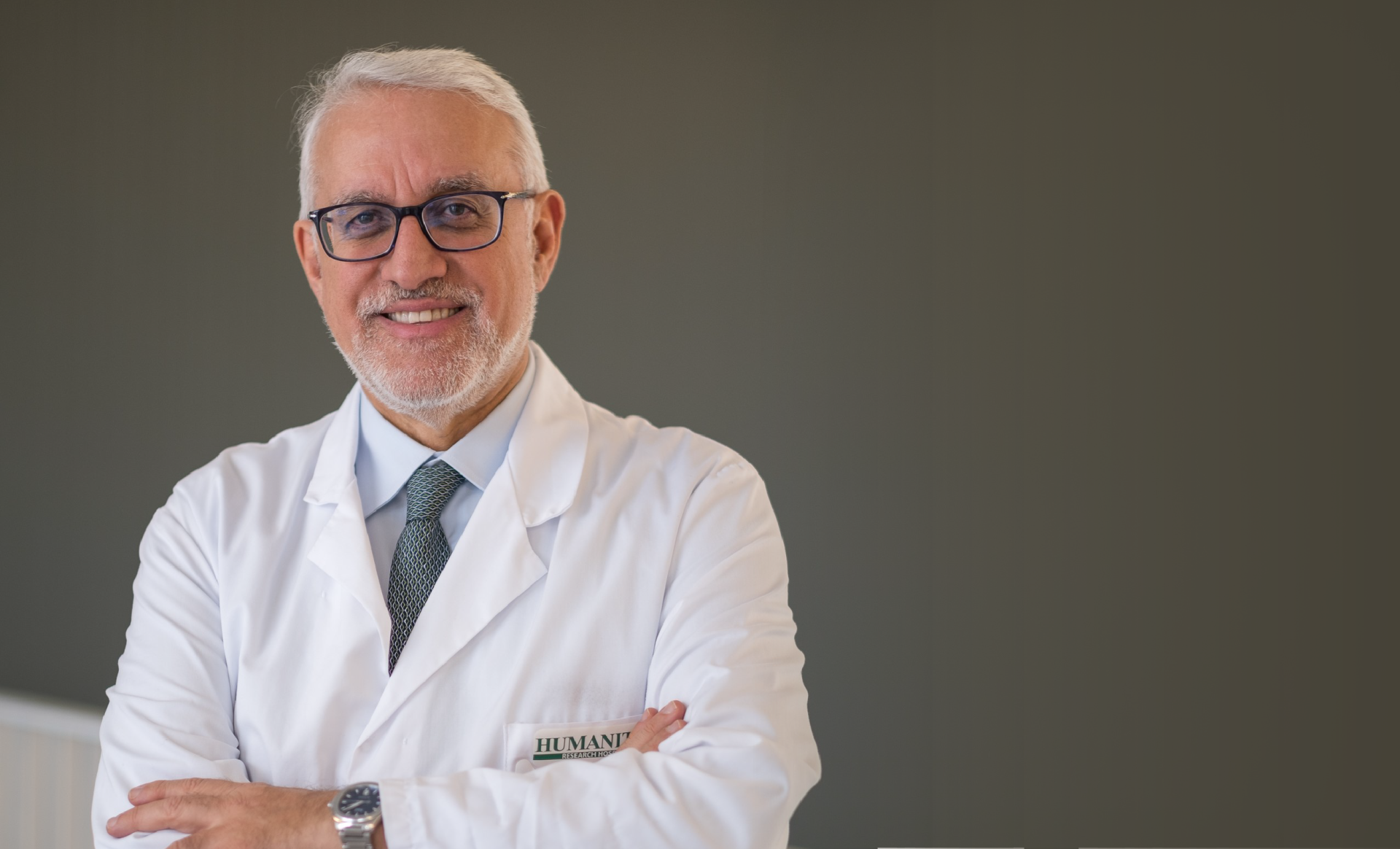Luigi Maria Terracciano appointed new Scientific Director of Humanitas

Professor Terracciano succeeds Alberto Mantovani, who has held the position since 2005 and will continue his work as President of the Humanitas Research Foundation.
Luigi Maria Terracciano has been appointed by the Humanitas Board as the Scientific Director of Humanitas Research Hospital. Under his leadership, Artificial Intelligence and Data Science will play an increasingly important role in Humanitas Campus research lines. The team of clinical and preclinical researchers, closely connected with Humanitas hospitals and Humanitas University, will be further strengthened across five research programs: Immunology, Cancer, Heart and Lung, Gastroenterology, and Neuroscience.
Prof. Terracciano has been the Rector of Humanitas University since June 2023 and heads the Pathology Unit at the hospital. He has a long-standing international career, primarily at the University Hospital of Basel in Switzerland. An expert in new technologies, he is actively involved in developing tissue analysis systems that leverage organoids, Artificial Intelligence, and Next Generation Sequencing to advance personalized medicine, particularly in oncology.
His research has always focused on gastrointestinal and liver diseases, both oncological and non-oncological. Prof. Terracciano has 30 years of experience in molecular pathology, translational research, and biorepositories for neoplasms. He is also an expert in advanced and high-throughput analysis techniques, such as tissue microarrays, which allow for rapid and efficient tissue structure studies—an approach developed in his own laboratory.
Prof. Terracciano succeeds Prof. Alberto Mantovani, who has served as Scientific Director of Humanitas Research Hospital since 2005. Prof. Mantovani will continue his work at Humanitas as a researcher, Scientific Director Emeritus, and President of the Humanitas Research Foundation, as well as Professor Emeritus at Humanitas University.
Mantovani has significantly contributed to advances in immunology, formulating new paradigms and identifying novel molecules and functions. He is the most cited Italian researcher in international scientific literature and has received numerous national and international awards for his research. His laboratories have trained both Italian and foreign researchers who have gone on to make significant contributions and hold prestigious positions in academia and industry. Prof. Mantovani remains actively involved in promoting science and scientific policies in Italy, with a particular focus on immunology, vaccines, oncology, and public health.
“I would like to thank Prof. Mantovani for his invaluable contribution over the years to our institution, particularly to research, one of the pillars of the Humanitas model alongside clinical care and education, which he helped build ‘from the ground up’,” said Gianfelice Rocca, President of Humanitas. “If Humanitas is a reference point today, it is also thanks to him. I extend my congratulations to Prof. Terracciano on his new role, confident that he will excel in integrating research, clinical activity, and education while further advancing internationalization and new technologies.”
“I want to thank President Gianfelice Rocca and Alberto Mantovani for this recognition of trust and esteem,” commented Prof. Luigi Maria Terracciano. “Succeeding Prof. Mantovani is both a tremendous honor and a great responsibility. Building upon the excellent results achieved so far, we will work to bring scientific research even closer to patients and their treatment needs, further strengthening the strategic alliance between hospitals, research, and universities. We will be guided by the values that have always defined us: innovation, sustainability, internationalization, and transdisciplinarity.”
“This transition comes after nearly 20 years in which I had the privilege of serving as Scientific Director at Humanitas,” added Prof. Alberto Mantovani. “These were years of collective growth in terms of research quality and impact—essential elements of an IRCCS and also of a university. I extend my deepest gratitude to the institution, colleagues, and collaborators. My best wishes to Prof. Terracciano, whose clinical background and role symbolize research that bridges the gap between the laboratory and patient care. Now, it’s time to face new challenges together.”